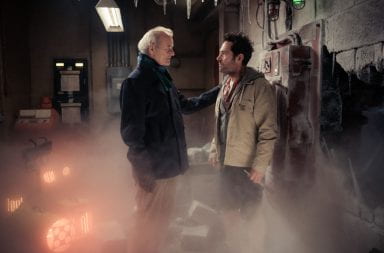Sci-fi thriller “Ex Machina” was released about a month ago, but writer and director Alex Garland’s inspiration came decades ago.
When he was around 11 years old, his parents brought home a computer. Garland learned basic coding to create a Q&A back and forth between him and the computer.
“It taught me in a really elementary way some of the difficulties of a making a computer communicate with humans,” Garland said in a college conference call. “I remember very clearly these little moments when you felt just for a second like you weren’t talking to a machine, even though you knew you were because you input all the questions and answers yourself. That feeling when it was working was really electric.”
The movie explores the electric feeling of creating and interacting with artificial intelligence.
“Ex Machina” tells the story of Caleb, a programmer, who wins a trip to his secret and lucrative boss’ massive estate for a week. The movie opens with no explanation of what Caleb does exactly or why he is whisked away by helicopter to an estate without a mailbox or door knob.
The ambiguous setting and time period allows viewers to wait and sometimes search for answers on their own without having it immediately spoon-fed to them.
The real reason Caleb is there is to analyze his boss Nathan’s latest AI creation, Ava. Nathan wants Caleb to spend all week performing a Turing test to determine whether Ava could pass as a human who acts on her own accord rather than the young Garland’s computer, which is programmed to answer set questions.
At one point, Caleb gives a thorough explanation of how he thinks Ava is programmed well. Nathan replies that that’s not what he asked. He wanted to know how Caleb “feels” about her.
If the romantic bells didn’t go off earlier, they definitely went off then. As much as part of me wants to be an angry feminist and demand why these men are only creating women and why do women have to come from men, I get it. Love and relationships are part of being human, therefore essential to a test of dividing humans from machine.
When asked about this relationship motive, Garland said, “I think the better question is to ask you, ‘what makes you think Ava is female?’”
Perhaps relationships don’t depend on gender or whether you can feel their warm skin against yours. In a world where technology advances rapidly, there are many questions as to what constitutes a real relationship.
“Ex Machina” does not give an answer, but instead shows that we are all searching for those fleeting electric moments.


